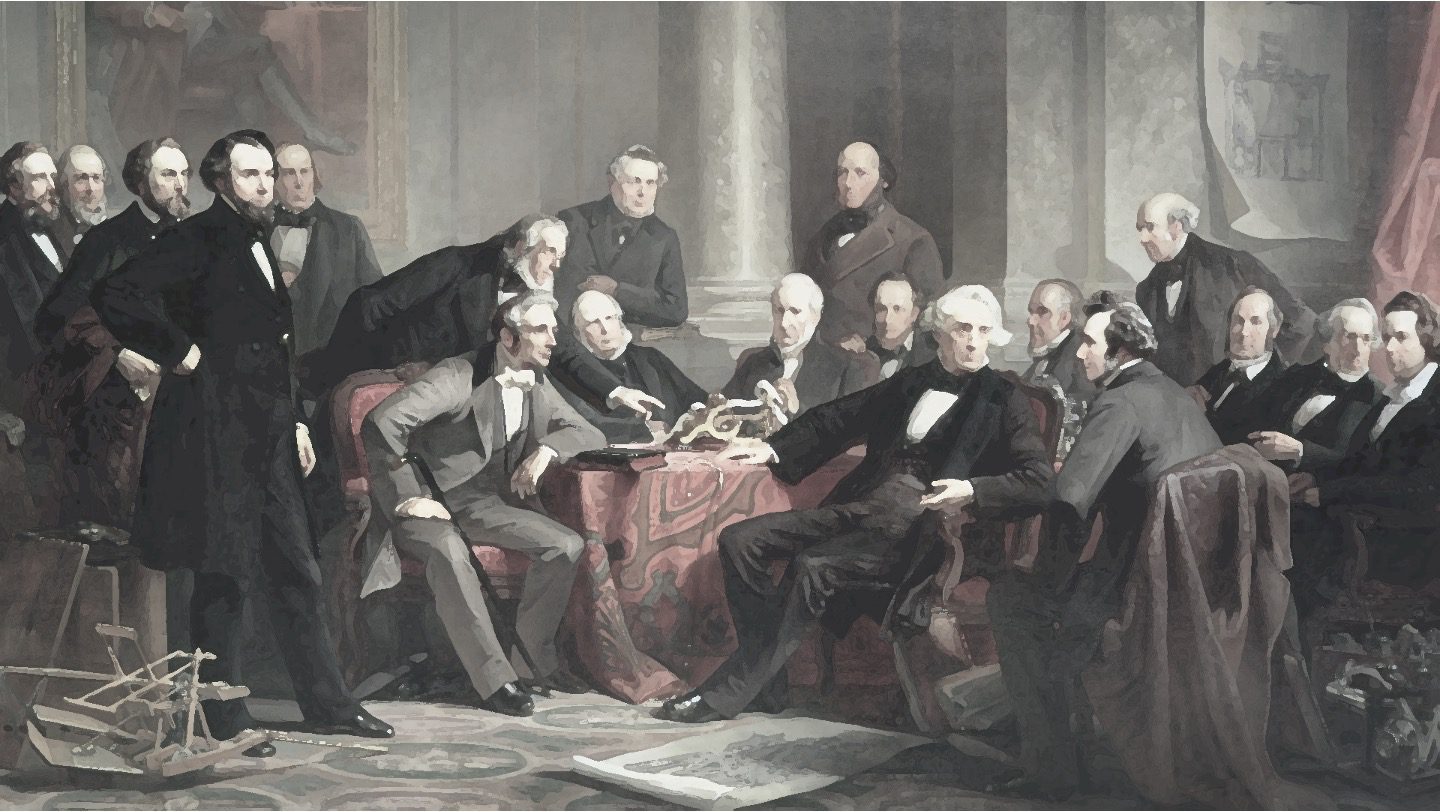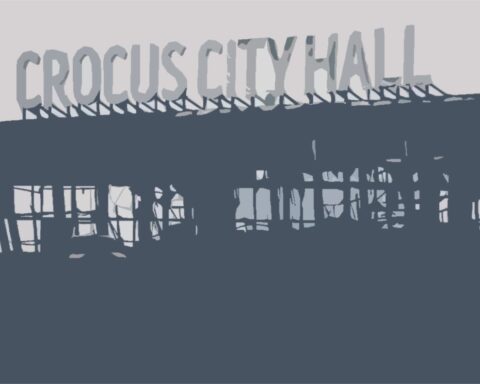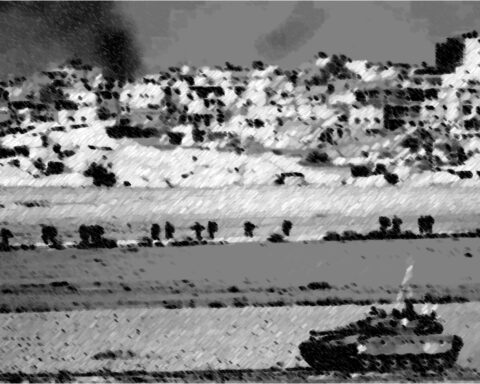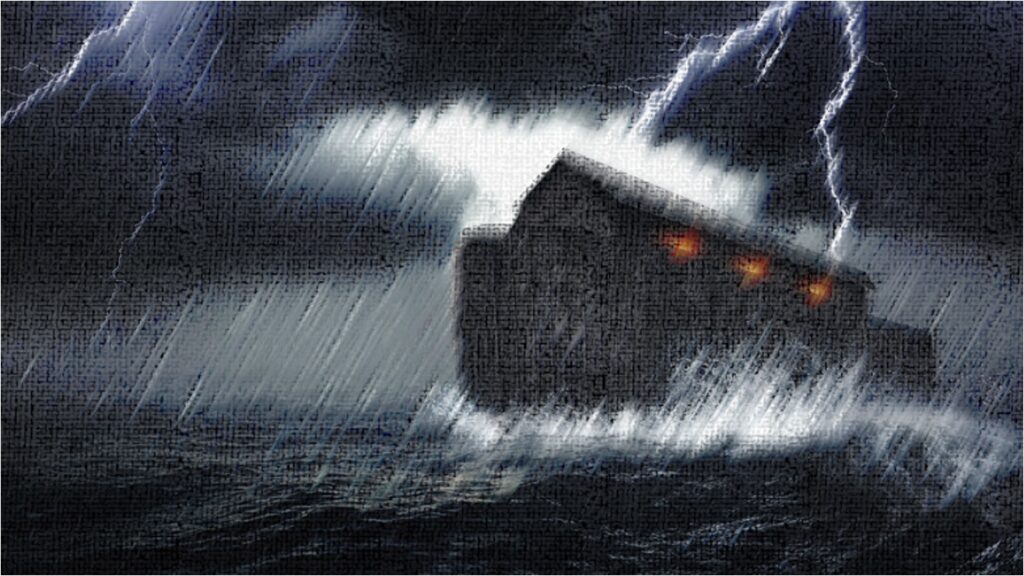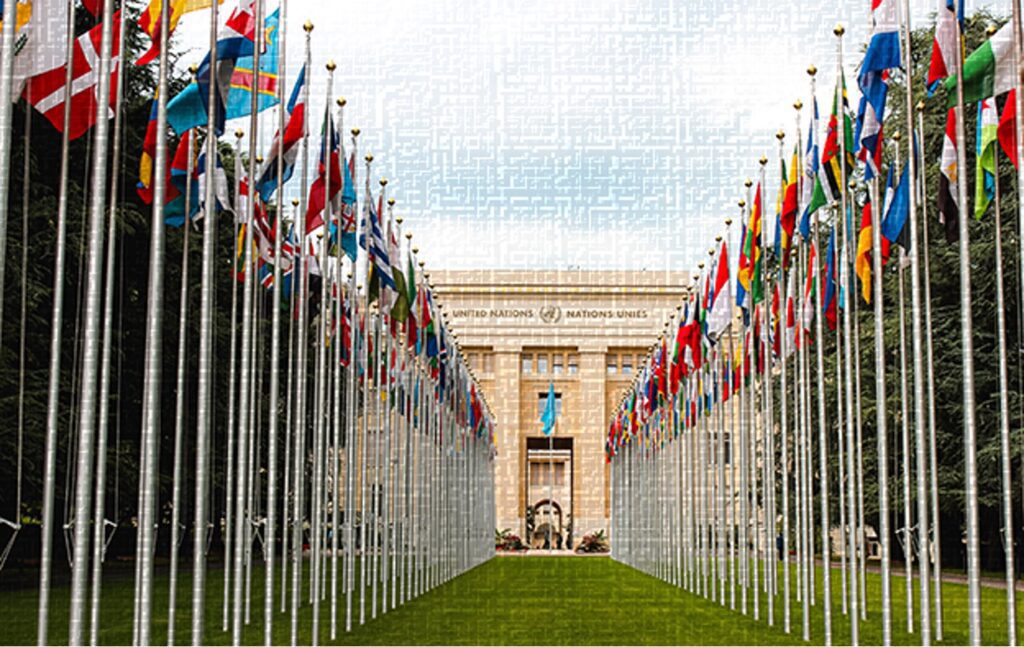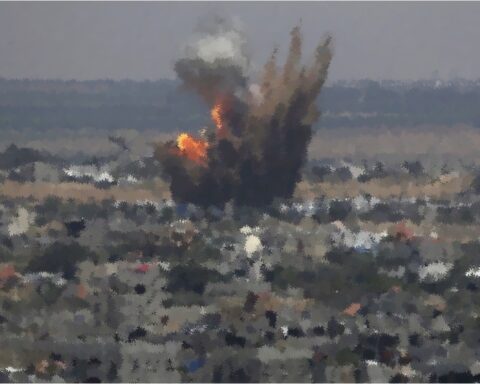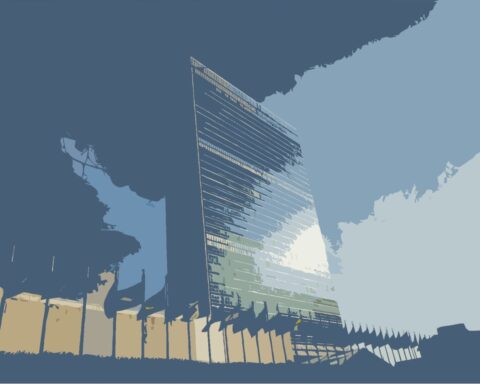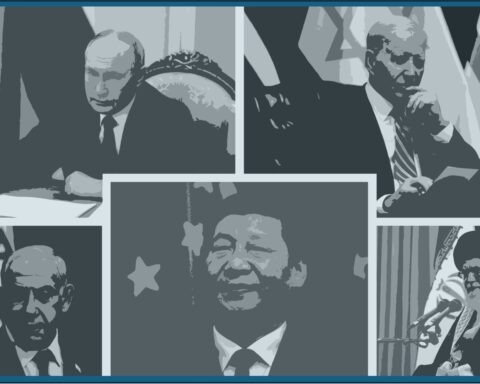There are as many opponents of democracy as there are of modernism, liberalism, and globalization. Nevertheless, concepts like democracy, modern democracy, liberal democracy, and global democracy continue to evolve in their own direction. Those who continue the legacy of the Enlightenment must always look to the future.
Case Study of Kazakhstan
It was 2003 in Kazakhstan at a meeting of the Organization for Security and Cooperation in Europe (OSCE). A young OSCE official had just finished a presentation on democracy, heavily criticizing corruption. It seemed that the young official had used all the concepts he had learned at university, which were still quite raw for him. The Kazakhs laughed it off. Later, the young official came to me and asked for my thoughts on his presentation. I smiled back at him. Even at that time, this vast country, which gained its independence from the USSR in 1991, had problems it could not solve on its own. Organizations like the OSCE were supposedly there to help Kazakhstan. Moreover, the authorities still used Russian, and all the signs were in Russian. At that time, the country had a relatively low level of industrial development. Its legal, educational, health, and financial systems were largely based on Russian methods. I would have liked to explain to the young official the cultural and psychological aspects of democracy, but there was no time.
The Enlightenment Mind
Democracy was a subject known and debated even in Ancient Times. If a challenging subject like democracy is explained in conjunction with developments in Europe, it gains meaning. I call this the “Enlightenment mind.” The Renaissance and reform movements (1450-1670), the Enlightenment period, the English Revolution (1688), the writing of Montesquieu’s The Spirit of the Laws (1748), the First Industrial Revolution (1784), and the French Revolution (1789) represent the maturation of a mindset over more than three centuries. These were the defining developments in the integration of democracy into society. European democracy developed and matured within this framework. Society’s layers, daily life, literature, philosophy, education, law, art, and scientific studies all developed together.
Making the Industrial Revolution
There is a big difference between being an industrial country and making the industrial revolution. The Enlightenment mind can make industrial revolutions, others follow it. When looking at the progress in education, law, science, and technology, as well as socio-economic development or adaptation of a country that makes industrial revolutions, it implies rapidly and firmly establishing all necessary balances at the national level.
Countries that have made industrial revolutions are those that understand mature democracy in the modern sense and can develop through it. For example, the Soviet Union built and developed its industry. But in many stages, the United States was one step ahead, or had the potential to be. It knew what it could do with its potential. The Soviet Union industrialized, but lost the Cold War to the U.S. because it did not have a modern democracy. The Cold War ended, and the Russian Federation settled for authoritarian rule. The U.S. and Britain, with their liberal democracies, opened and expanded the path to globalization.
Foundation of the USA
During those talks in Kazakhstan, I thought about the founding of the United States. The migration to a new geography, the presence of different communities, the occurrence of a civil war, and the leading figures of the country determining a roadmap for moving forward with a founding philosophy, all these things I considered. The first Constitution was unanimously accepted in Delaware in 1787, followed by other states. The British issued the Magna Carta in 1215. For the Americans, the ability to develop a claim in a new world and interconnect it mechanically was impressive. This skill was not just of the time; it was based on approximately 570 years of accumulated experience. Moreover, those who migrated from Europe to the new world brought the Enlightenment mind with them. This must have been an advantageous aspect of carrying European culture and existential values. However, the success of the founding leaders was due to their well-designed structural elements.
Global Democracy
Francis Fukuyama and Larry Diamond evaluate the year-end performance of countries regarding global democracy. I watched their discussion on YouTube on December 21, 2023. The talk included examples from China, Russia, Hungary, Turkey, Argentina, Poland, Mexico, Brazil, India, and even the U.S. What intrigued me most was that this conversation was happening under the umbrella of global democracy. I believe we need to discuss global democracy more. The second thing that caught my attention was the comparative analysis of democracies. The practices of democracy in countries were proceeding in a way that was synonymous with life. Democracies could change over time and conditions, but these changes needed to be well analyzed. Think about the global democracy pool; looking at all democracies that vary over time and conditions, you must make accurate diagnoses. If there is to be progress in global democracy, analyses must be satisfying. Francis and Larry’s analyses had this robustness.
Case Study of India
In the discussion about democracy, India, considered the world’s largest democracy, was described as being in a “gray area.” Geopolitical assessments make it understandable why India is positioned in the gray area. In their talks, Francis and Larry examine the leadership of Prime Minister Narendra Modi. Notable points include practices towards the opposition party and the media, and obstacles to the development of civil society.
In the evaluation of democracy, the points I want to emphasize are fundamental. Here again, we can talk about the existence and functioning of the British-style education, legal, etc., systems. Therefore, it can be said that there is an infrastructure for liberal democracy in India. If a critique of Modi or his party, Bharatiya Janata, is made, and some illiberal practices are observed in the country, it can be said: Developing countries can change their practices according to the world to advance to higher levels in global competition, and the resulting situation is merely an observation in terms of democracy criteria.
System and Culture
When examining democracies, my classification method is quite simple; I look at the system and cultural issues. The system includes structural, constitutional, economic, legal, and other aspects that can be considered in this direction. The cultural part includes sociological and psychological, or in other words, societal, moral, religious, and ideological information, political interests, and leadership.
If we consider this simple classification, how does the Enlightenment mind affect the system and culture? In Western societies, their own Enlightenment system naturally and fully influences every structural element of the country, that is, every fundamental aspect from a constitutional, economic, legal perspective. Similarly, their own Enlightenment culture naturally and fully influences every sociological, psychological, moral, religious, and ideological aspect.
The exact counterpart is in non-Western societies that later adopted (or rejected) the Enlightenment mind and did not make the industrial revolution but industrialized (or strived to industrialize). These societies do not have their own Enlightenment systems and cultures. They have their own systems and exist in the world with their own structural, sociological, and psychological values. If these geopolitical influences are read together, countries are in international competition or, in today’s terms, global competition. What does the idea of global democracy indicate in an ecosystem where global competition exists and naturally develops? Is global democracy an ideal that proposes developing structurally equal systems despite cultural differences and guarantees the development of humanity?
If so, at least in the economy, law, technology, education, health, etc., some commonalities can be established.
Democracy Indexes
If you look at a country in a concrete and systematic way, it is possible to grade its democracy. You determine sufficient criteria and write their values opposite them. There are organizations that work in this way and provide reports with index information every year. But beyond every numerical comparison, you pause and think about cultural issues. Perhaps this is the main issue in the discussion of democracy, as it relates to life.
The correct direction for global democracy is to work on concrete and system-related issues. Let’s give examples. The World Economic Forum’s Global Competitiveness Report is a very detailed study in this regard. The report I have in hand is dated 2019 and signed by Klaus Schwab. Special scales are used for each topic examined in this report. Let me give an example. The report measures education for the future workforce as well as current education.
Another example from the report is the Innovation Ecosystem topic. Like the first example, this also encompasses a future-focused thought. The report aims to remove obstacles to development and even to improve system creation capacity. Ultimately, the creators, architects, and workers of development will be trained individuals and institutional structures with obstacles removed. This should be described as a healthy system benefiting from global capacity, with access to necessary financing and facilities for research and development. There is no personal or ideological policy here; the ideal is the development of humanity. The goal is to bring out new values.
For other examples, you can look at such documents. My point here is that concrete and systematic work for global democracy is possible.
There are other topics discussed, let me touch on them. An organization that publishes annual indexes, for instance, takes the issue of pressure on the media as a criterion. Even social media is under the freedom category. However, social media continues to be a debated topic in terms of democracy. Because with Artificial Intelligence (AI), a new situation has arisen. The whole world is still discussing AI, in all aspects. Institutions that give democracy grades are likely waiting for now regarding trends in this area.
To defend this purpose, that one development influences another is correct; do not give up!
American Democracy Discussion
As is done every year, U.S. President Joe Biden recently held the Democracy Summit. Biden did not invite some countries to this summit. The Biden administration’s policy is to fight against autocracies. This is a country policy. So how does the White House determine who to invite to such a meeting? Do they look at democracy indexes, or do they consider global policies thought to be in the interest of the U.S.? I suppose both are valid, but they probably also use indexes as data.
The National Security Agencies worked on the 2016 U.S. Presidential election, which Donald Trump won. According to their report, American democracy was attacked by Russia-sourced post-truth practices. Based on these findings, some precautions were taken in the 2020 elections. But still, the discussion about democracy in the U.S. continued. At least the Republicans carried out the famous Congress raid (2021). Some trials related to this are ongoing. Preparations for the 2024 elections are underway. The first obstacle to Trump’s candidacy came from the state of Colorado.
Looking at the most basic discussion topics about American democracy today, we see that the problems related to what I call cultural are being discussed. For example, in the descriptions of those who oppose the claim of liberal democracy in the world, illiberals and autocracies are present. Illiberals and autocracies criticize the U.S. for its wrong policies. Trump’s presidency clearly shows this. Trump is a leader with an autocratic understanding. The American system is completely liberal democratic, but for a period, it elected a president who was autocratic in character, with some practices and thoughts not at all democratic! The second example is the practices of American politicians and even leaders who are evangelical. Let’s say such a topic is exaggerated by others; however, if the topic is culture and politics, even this much should be taken seriously. After all, opponents of the U.S. are waiting for a counterattack. They need a topic to advance. Such topics show human-specific behaviors precisely. However, religious issues have become important again, and some writers are already drawing attention to these issues. I remind you that these two examples were evaluated in a conversation about global democracy by Francis and Larry.
What would the index for U.S. democracy cover? It doesn’t matter who President Biden invites to the Democracy Summit. Because the index study is like taking an X-ray. Moreover, U.S. democracy has an Enlightenment system and culture. Most importantly, the working method of the liberal democratic system has globalized.
These types of issues should be viewed in the context of global democracy. Each country can draw some conclusions and set goals for itself. Meanwhile, indexes must also develop and complete their deficiencies. Indexes must have a function within global democracy, and their framework should be well defined. Ultimately, despite all cultural differences, developing structurally equal systems for countries and humanity can be seen as a goal, at least in terms of developing common understanding and practices in the economy, law, technology, education, health, etc.
Case Study of South Korea
When we consider the socio-economic aspect of democracy structurally, as I mentioned, it is a more manageable topic. Because, for example, when you want to systematize the economic side of democracy, you accept the liberal approach and the British legal system. For instance, if countries like South Korea sign a Free Trade Agreement with the United States and accept American law – British law – they largely solve the structural problem. In liberal democracy, investors come easily to such a country, and economic growth occurs naturally. Moreover, the defense issue is resolved with the hard power of the United States. Now the whole matter is to manage the people, produce technology, institutionalize the education system to train the workforce at the desired levels, etc. The people are loyal to their culture, but on the other hand, every issue provides the systemic elements required by liberal democracy. I am not even asking what the function of North Korea is at this point!
I am giving the example of South Korea to explain the concept of global democracy better. Think hypothetically, if all countries in the world were like South Korea. Let’s clarify the different point: South Korea is a special example, and its political choices should be considered together with the war, political agreements made, and the interests and efforts of the U.S. in the Pacific. In other words, time has flowed this way for South Korea. What can be learned from this example? Those related to the structural system.
It is possible to look at the Ease of Doing Business rankings in the archives of the World Bank’s Doing Business study (2020 review). According to this, South Korea ranks 5th. The important point I see here is that South Korea ranks 2nd in the world in terms of enforcing contracts. This raises South Korea’s country rating. The enforcement of contracts is due to the Free Trade Agreement made with the U.S. and the requirement to apply the legal system in the same way. The whole issue is the law, having facilities based on it, and being able to solve problems.
Problem Solving
Here’s what I understand: some countries are either not aware of their structural problems or are aware but don’t pay much attention to them due to their political tendencies and personal interests. However, solving structural problems is crucial for modern democracies. When you address these structural issues one by one, we are reviewing many topics related to development, the society’s capacity to achieve development, and the fundamental capacity that accelerates global growth, consolidates it, and makes it compatible with others. But to solve structural problems, the democratic system must be able to analyze and resolve the wrong leadership and the parts of the political process in countries that are closed to development from within.
